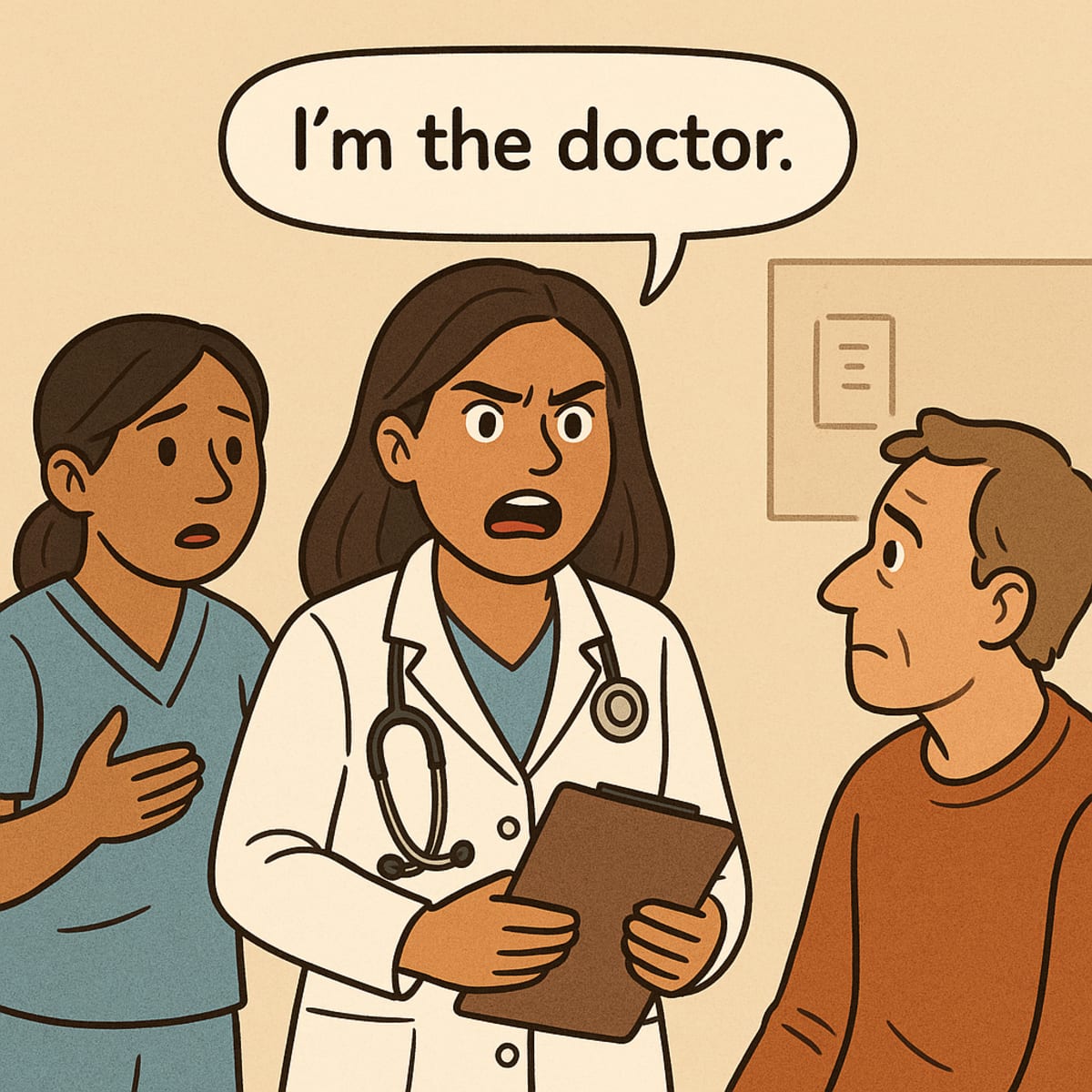Introduction
You speak. They smile politely.
You explain. They interrupt.
You clarify. They ignore—and later praise someone else for your idea.
If you've ever walked away from a conversation thinking, “Did they just dismiss everything I said?”, you're not alone—and you're not imagining things.
Many women, especially in healthcare and leadership roles, experience a quiet but persistent form of devaluation: being talked over, second-guessed, or treated as though their competence needs confirmation. Add a foreign accent or non-white skin tone into the mix, and this dynamic becomes even more pronounced.
Case Study: Dr. Reyes and Nurse Grace
Dr. Reyes, a respected cardiologist in a German hospital, often encounters patients and colleagues who assume she’s a medical assistant or a trainee. Despite her seniority and qualifications, she regularly finds herself having to reassert her position—sometimes just to be heard.
Meanwhile, Grace, an ICU nurse originally from the Philippines, speaks fluent German. But because she speaks with an accent, she’s frequently interrupted or corrected by white colleagues—often unnecessarily. Her documentation is sometimes “rewritten” to sound “more professional,” even when her notes are clinically accurate.
Neither woman is doing anything wrong. Both are excellent in their fields. The problem lies in perception—not performance.
The Deeper Issue: Why Competence Isn’t Always Enough
What’s really happening here?
- Gender bias: Women are statistically interrupted more often in meetings and perceived as less authoritative.
- Accent discrimination: Non-native speakers—especially women—are rated as less competent, even when saying the same things as native speakers.
- Racial bias: BIPOC women often navigate multiple layers of exclusion and are less likely to be credited for their contributions.
This isn’t about isolated bad manners. It’s a systemic issue that plays out in thousands of micro-moments each day.
How to Be Taken Seriously—Without Raising Your Voice
1. Use Authority-Based Framing
Start strong with statements like:
- “Based on my clinical experience…”
- “Let me share what the current research suggests…”
This sets the tone early and leaves less room for doubt.
2. Reclaim the Floor
If interrupted, respond with calm clarity:
- “I’d like to finish my thought.”
- “Let me complete this point before we move on.”
You don’t need volume—just boundaries.
3. Assertive Correction Without Apology
When corrected on pronunciation or phrasing:
- “That’s how I say it. It’s clear and accurate.”
- “Let’s focus on meaning rather than accent.”
This reframes the conversation back to content, not cultural bias.
4. Use Strategic Non-Verbal Communication
- Sit at the main table—not off to the side.
- Hold your pauses.
- Use purposeful eye contact and grounded posture.
Confidence isn’t just audible—it’s visible.
5. Amplify Others—and Ask to Be Amplified
Support colleagues by reinforcing their contributions:
- “Let’s go back to what Grace just said—it's an important point.”
Also let trusted allies know when you need their backup in high-stakes situations.
Final Thought: You Belong in the Room
If you’ve ever felt invisible in a room you had to work twice as hard to enter, know this:
- Your voice doesn’t need to sound like theirs to be valid.
- Your authority isn’t diminished by an accent or a soft tone.
- You don’t have to assimilate into silence to be respected.
You are the doctor. You are the expert. You are enough—exactly as you are.
